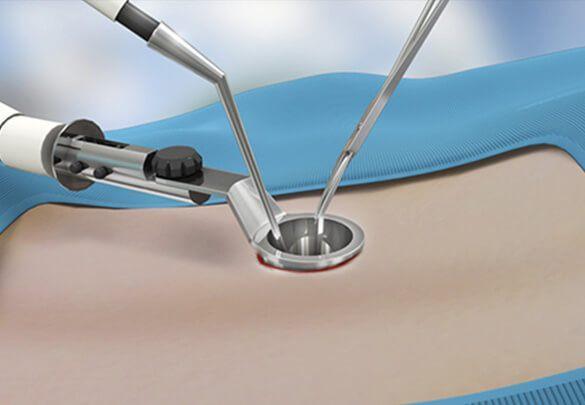
Small Incisions, Big Results: Minimally Invasive Spine Surgery Explained

Minimally invasive spine surgery (MISS) is a surgical approach that has revolutionized the treatment of spine-related disorders. Unlike traditional open spine surgery, which involves making large incisions and separating muscles and tissues, MISS utilizes small incisions and specialized instruments to access the spine. This approach allows for reduced trauma to the surrounding muscles and tissues, resulting in less pain, faster recovery, and fewer complications.
MISS is typically performed under general anesthesia and involves the use of specialized tools, such as endoscopes, specialized retractors, and surgical microscopes. These tools allow surgeons to visualize the spine without the need for large incisions, and to access and repair the affected areas with precision.
One of the primary advantages of MISS is that it reduces the risk of damage to the muscles and tissues surrounding the spine. In traditional open surgery, these structures are often cut and separated to access the spine, which can result in significant trauma, pain, and prolonged recovery times. In contrast, MISS requires only small incisions and minimal dissection, which significantly reduces the risk of complications.
Another advantage of MISS is that it results in less blood loss, which can be especially beneficial for patients with bleeding disorders or other medical conditions that increase the risk of bleeding.
There are many conditions that can be treated using MISS, including herniated discs, spinal stenosis, spinal deformities, and spinal fractures. However, not all patients are suitable candidates for this type of surgery. Patients with severe spinal deformities, large spinal tumors, or spine infections may require traditional open surgery to achieve optimal results.
Overall, minimally invasive spine surgery is a safe and effective option for many patients with spinal disorders. If you are experiencing neck pain, back pain, numbness/tingling/pain in the arms or legs, or other symptoms related to your spine, it is important to speak with a qualified healthcare professional like Dr. Remi Ajiboye to determine if MISS is right for you. With its many benefits, MISS has become a popular option for patients seeking a faster, less painful, and more effective way to treat their spinal conditions.
You Might Also Enjoy...


Laminectomy: What Patients Need to Know About This Common Spine Surgery
Understanding Your Spine MRI: What It Reveals About Your Condition

The Future of Spine Surgery: Innovations in Robotic and AI-Assisted Techniques

Signs That You May Need Spine Surgery


